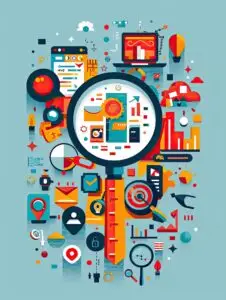Data is king. In the Words of Lil Wayne “men lie, women lie, numbers don’t lie.” For businesses, understanding customer behavior through data analytics is a powerful tool for growth. But as companies collect more and more personal information, the question arises: is Big Brother watching?

The debate over how customer data is used—and sometimes misused—continues to fuel concerns about privacy, ethics, and transparency.
The Fine Line Between Insight and Intrusion
As customer experience designers, we know data can help businesses improve their services. But when does data collection cross the line? According to data privacy expert Bruce Schneier, “Surveillance is the business model of the internet.” This sentiment captures the delicate balance between businesses seeking insights and consumers who feel watched.
One well-known case study of data misuse comes from Cambridge Analytica. The now-defunct British consulting firm used personal data harvested from Facebook profiles to influence voter behavior during the 2016 U.S. elections. The breach involved unauthorized access to millions of users’ private information, sparking global outrage and highlighting the risks of improper data handling.
Closer to home, Target faced backlash when it inadvertently exposed a teenage girl’s pregnancy to her family through personalized marketing campaigns based on her buying behavior. These instances show how unchecked data collection can violate personal boundaries, raising the question of how far is too far when it comes to data analysis.
Ethical Practices and Transparency
Despite these horror stories, not all businesses operate in the shadows. Ethical practices in data collection are gaining momentum. Companies like Apple have positioned themselves as champions of privacy, promoting features that allow users to track who is collecting their data and giving them control over what’s shared. You have to allow apps to track your usage and you can always decline. Ethical data collection means transparency, consent, and putting the user first—something that all businesses should prioritize.
In the words of George Orwell from his famous novel 1984, “Big Brother is watching you.” Today, this phrase resonates more than ever, as consumers feel the weight of surveillance through targeted ads and personalized emails. For businesses, the challenge is clear: gather valuable data, but respect the privacy and trust of customers in the process.
Moving Forward
The key to navigating the dark side of customer data lies in ethical standards, clear communication, and respecting privacy. Transparency, consent, and respect for customer autonomy will allow businesses to harness the power of data without becoming the “Big Brother” that customers fear.
If you want info like this sent directly to your inbox, join our newsletter, The Detour.





